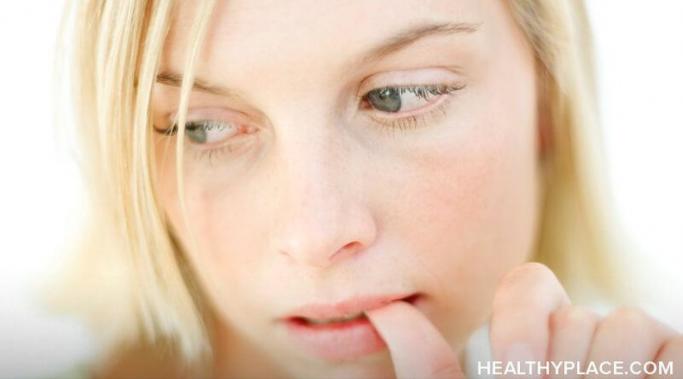Blogs
In AA today, we were talking about the insanity behind substance abuse, a common symptom of borderline personality disorder (BPD). We agreed that self-knowledge is not enough to solve the various addictions we face in life, whether it be alcohol, self-injury or any other self-destructive behavior.
tneely
It's important to honor our feelings, to treat them with respect and to not judge ourselves for having them. Even embarrassing feelings, or hateful ones, or angry ones. We can honor our feelings without acting on them immediately because when you own your feelings, you have self-discipline and can allow feelings to pass in and out of you until you feel ready to act on them. Or not. Learning to honor our feelings teaches us to honor ourselves.
Lately, I feel as if I've hit a roadblock in my recovery. I take my medications regularly, I go to therapy, I exercise, but I've hit a wall that I can't seem to move past (Bipolar Treatment: If I'm Doing Everything Right Why Am I Still Sick?). The other day, I received a book from a good friend of mine: Sane: Mental Illness, Addiction, and the Twelve Steps by Marya Hornbacher, and I started thinking about new things that I could incorporate in my life.
In bipolar disorder comorbid conditions (conditions that occur alongside the bipolar disorder) are more the rule than the exception. In the video I discuss the psychiatric and non-psychiatric conditions that commonly occur alongside bipolar disorder.
Yes, Adult ADHD isn't my friend a lot of the time. It's true - I struggle. Still, there are totally things I love about my brain that I don't think would be possible if my Adult ADHD weren't present. I think it's about darn time to talk about my favorite parts about it!
Quitting your depression medication without the doctor's help can lead to trouble. In fact, getting off your antidepressant medication on your own is a very bad idea.
I know, because I did it.
Today, nearly two months since my last post about Amanda Bynes, she has finally been admitted for psychiatric evaluation. What took so long?
This much I have personally experienced: until someone you love is of “harm to self or others”, it’s next to impossible to get him or her placed for evaluation. Unfortunately, sometimes by then it is too late.
Yesterday, Amanda’s parents were finally able to apply for conservatorship – a decision that was delayed, as it looks like Amanda will stay under psychiatric care for at least two weeks. For this time, as I know all to well, her family will have a time to regroup a bit, breathe a sigh of relief that Amanda is safe for the moment, and gather strength for the fight that lies ahead.
When you are diagnosed with a mental illness, it can feel like your life is suddenly on display. You can feel sort of like an exhibit at a museum - one your family and friends and psychiatrist want to tend to. It's not easy getting used to this, but what about when you encounter people, situations, on your road to recovery that make you feel exposed?
When you meet new people and you admit to having Adult ADHD, it's easy for people to jump to conclusions about your behavior. It's easy to say that you're an adult and you should be able to do X, Y, and Z without issue, but having Adult ADHD can make X, Y, and Z more difficult.
I have had an eating disorder for fully half of my life. I’ve spent nearly as many years in eating disorder treatment as I did in college. I write a blog about eating disorders and recovery. So it’s easy to believe the lie that I am Jessica, the recovering and/or relapsing anorexic. It’s easy for any of us to believe that our eating disorder is a huge part of who we are. No, not just a huge part – but who we are in our entirety.







